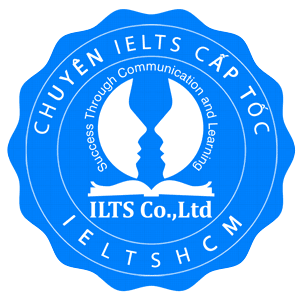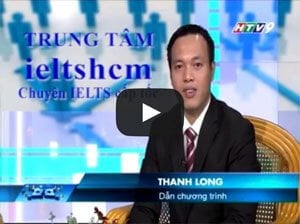Bài mẫu Speaking IELTS chủ đề vận tải và chuỗi cung ứng. Transportation, Logistics, Supply Chain
Bài mẫu Speaking IELTS chủ đề vận tải và chuỗi cung ứng. , Logistics, Supply Chain. Bài thi thực tế Speaking IELTS chủ đề vận tải và chuỗi cung ứng – IELTS Speaking Recent Actual Tests about Transportation, Logistics, Supply Chain, Shipping, Delivery, Fleet, Freight, Commute, Roadways, Airways, Railways, Automotive, Mobility, Traffic, Infrastructure, Rideshare, Public transit.

Bài mẫu Speaking IELTS chủ đề vận tải – IELTS Speaking Recent Actual Tests about Transportation, Logistics, Shipping, Delivery, Fleet, Freight, Commute, Roadways, Airways, Railways, Automotive, Mobility, Traffic, Infrastructure, Rideshare, Public transit: IELTS Speaking part 1, IELTS Speaking part 2, IELTS Speaking part 3 – Transportation, Logistics, Shipping, Delivery, Fleet, Freight, Commute, Roadways, Airways, Railways, Automotive, Mobility, Traffic, Infrastructure, Rideshare, Public transit: Sample Answers and Topic Vocabulary for IELTS Speaking Exam. Topic Transportation, Logistics, Shipping, Delivery, Fleet, Freight, Commute, Roadways, Airways, Railways, Automotive, Mobility, Traffic, Infrastructure, Rideshare, Public transit vocabulary for IELTS speaking exam.
Transport đề tài không thể thiếu trong IELTS
Bài mẫu IELTS Speaking (Part 1, 2, 3) – Chủ đề Travel Tourism
Bài mẫu Speaking IELTS chủ đề vận tải – IELTS Speaking Recent Actual Tests about Transportation Sample 1:
Examiner: Good morning. Can I have your name please?
Candidate: Good morning. My name is Sarah.
Examiner: Thank you, Sarah. How are you today?
Candidate: I’m doing well, thank you. How about you?
Examiner: I’m fine, thanks. So, let’s start with Part 1. Can you tell me about your daily routine and how you usually get around?
Candidate: Sure. I typically start my day by waking up early and having breakfast. Then, I take the bus to work, which takes about 30 minutes. After work, I either walk or take a bike ride to the gym for some exercise. And then, I take the bus back home and have dinner with my family.
Examiner: That’s a busy day. And do you prefer using public transportation or do you own a private vehicle?
Candidate: I prefer using public transportation. I live in the city and find it to be convenient and affordable. Plus, it’s better for the environment and reduces traffic congestion on the roads.
Examiner: That’s a good point. Now, let’s move on to Part 2. Can you describe a transportation system that you admire and why?
Candidate: I admire the transportation system in Japan. It’s efficient, affordable, and environmentally friendly. The trains and buses run on time, and there are many options for getting around, including subways, trains, and buses. The transportation infrastructure is well-developed, making it easy for people to travel within and between cities.
Additionally, the Japanese government has invested heavily in research and development to create innovative and sustainable transportation options, such as electric and hybrid vehicles. This helps to reduce the country’s carbon footprint and improve air quality.
I also appreciate the safety culture in Japan’s transportation system. The government and transportation providers place a high priority on safety and take measures to minimize risks to passengers, such as regular safety inspections and training programs for drivers.
Overall, I believe that the transportation system in Japan is a model for other countries to follow in terms of efficiency, sustainability, and safety.
Examiner: That’s interesting. And do you think your country should implement similar policies and systems to improve its transportation?
Candidate: Yes, I do. My country has a growing population and rapidly expanding cities, which have led to increased traffic congestion and air pollution. Implementing similar policies and systems as Japan could help to reduce these issues and improve the quality of life for people in my country.
Examiner: Okay, thank you. Now, let’s move on to Part 3.
Examiner: Let’s talk about transportation. In your opinion, what are the benefits and drawbacks of using private vehicles for transportation?
Candidate: There are both benefits and drawbacks to using private vehicles for transportation. One benefit is the convenience of having your own transportation. You can go where you want, when you want, without having to rely on public transportation schedules or availability.
Another benefit is the privacy that comes with having your own vehicle. You can have time and space to yourself, which can be important for some people.
However, there are also several drawbacks to using private vehicles. One is the cost of ownership, which can be high due to the cost of the vehicle, insurance, maintenance, and fuel.
Another drawback is the impact on the environment. Private vehicles emit pollutants, such as carbon monoxide and nitrogen oxides, which contribute to air pollution and climate change.
Finally, private vehicles can also contribute to traffic congestion, making it difficult for people to get where they need to go in a timely manner.
Bài mẫu IELTS Speaking (Part 1, 2, 3) – Chủ đề Travel Tourism
Bài mẫu Speaking IELTS chủ đề vận tải – IELTS Speaking Recent Actual Tests about Transportation Sample 2:

Examiner: Good morning. Can I have your name please? Candidate: Good morning. My name is John. Examiner: Thank you, John. How are you today? Candidate: I’m doing well, thank you. How about you? Examiner: I’m fine, thanks. So, let’s start with Part 1. Can you tell me about your current employment or study status?
Candidate: Currently, I am a student studying transportation engineering. I’ve been interested in this field for a long time, and I believe it has a big impact on people’s lives.
Examiner: That’s great. So, why did you choose this field?
Candidate: I have always been fascinated by the ways in which transportation systems can be designed and managed to meet the needs of people and communities. I also believe that transportation has a huge impact on the environment and the economy, and I want to be a part of finding sustainable solutions to these challenges.
Examiner: That’s interesting. Now, let’s move on to Part 2. Can you describe a transportation project that you would like to work on in the future?
Candidate: In the future, I would like to work on a project focused on developing sustainable transportation solutions for urban areas. I believe that cities need to prioritize public transportation options that are both efficient and environmentally friendly.
For example, I would like to explore the feasibility of implementing electric or hybrid buses for public transportation, as well as explore ways to integrate alternative modes of transportation, such as biking and walking, into urban transportation networks. Additionally, I would like to work on developing smart transportation systems that can optimize traffic flow, reduce congestion, and improve air quality.
Overall, I believe that transportation systems have a critical role to play in shaping the future of cities, and I would be excited to contribute to this field in a meaningful way.
Examiner: That sounds very interesting. And what skills and qualities do you think are important for someone working in this field?
Candidate: I believe that someone working in transportation engineering should have strong technical skills, including proficiency in computer modeling and simulation tools, as well as a deep understanding of transportation systems and infrastructure. Additionally, they should have strong problem-solving skills and the ability to think creatively and critically when approaching new challenges.
They should also have good communication and interpersonal skills, as transportation projects often involve collaboration with a variety of stakeholders, including government agencies, transportation companies, and community groups. Finally, a commitment to sustainability and a passion for finding solutions to the challenges facing urban transportation systems are also important qualities for someone working in this field.
Examiner: Okay, thank you. Now, let’s move on to Part 3.
Examiner: Let’s talk about transportation. In your opinion, what are some of the biggest challenges facing transportation systems today?
Candidate: In my opinion, some of the biggest challenges facing transportation systems today include traffic congestion, air pollution, and the high cost of transportation. In many urban areas, traffic congestion is becoming a major issue, as more and more people are driving cars, leading to longer commute times and increased air pollution.
Additionally, the high cost of transportation, including the cost of gasoline and the cost of maintaining roads and transportation infrastructure, is also a major challenge. This high cost can make it difficult for people to afford transportation, and can also contribute to poverty and social inequality.
Finally, the increasing demand for sustainable transportation solutions is also a major challenge. As more people become aware of the impact of transportation on the environment, there is a growing need for environmentally friendly transportation options that are also affordable and accessible.
13 chủ đề IELTS Speaking cần biết
Từ vựng học thuật chủ đề đề vận tải và chuỗi cung ứng | Từ vựng học thuật chủ đề Transportation, Logistics, Supply Chain…
- Transportation : Vận tải
- Logistics : hậu cần
- Shipping : Đang chuyển hàng
- Delivery : Vận chuyển
- Fleet : Hạm đội
- Freight : vận chuyển hàng hóa
- Commute : đi lại
- Roadways : đường bộ
- Airways : hàng không
- Railways : đường sắt
- Automotive : ô tô
- Mobility : tính cơ động
- Traffic : Giao thông
- Infrastucture : cơ sở hạ tầng
- Rideshare : dịch vụ xe dùng chung có phí
- Public transit. : Giao thông công cộng.
- transportation : vận tải
- modes of transportation : phương thức vận tải
- public transportation : phương tiện công cộng
- private transportation : giao thông cá nhân
- sustainable transportation : giao thông bền vững
- congested : nghẽn
- traffic : giao thông
- commute : đi lại
- transportation infrastructure : cơ sở hạ tầng giao thông
- alternative transportation : vận chuyển thay thế
- transportation efficiency : hiệu quả vận tải
- green transportation : giao thông xanh
- transportation planning : quy hoạch giao thông
- transportation options : tùy chọn giao thông vận tải
- transportation costs : chi phí vận chuyển
- transportation accessibility : khả năng tiếp cận giao thông
- transportation safety : an toàn giao thông
- transportation sustainability : giao thông bền vững
- transportation impact : tác động giao thông
- transportation technology. : công nghệ giao thông vận tải.
Bài thi IELTS speaking mẫu chủ đề về giao thông, vận tải, hàng không, vận chuyển, Logistics – IELTS Speaking Recent Actual Tests about Transportation, Logistics, Shipping, Delivery, Fleet, Freight, Commute, Roadways, Airways, Railways, Automotive, Mobility, Traffic, Infrastructure, Rideshare, Public transit: IELTS Speaking part 1, IELTS Speaking part 2, IELTS Speaking part 3.
Sample Answers and Topic Vocabulary for IELTS Speaking Exam. Topic Transportation, Logistics, Shipping, Delivery, Fleet, Freight, Commute, Roadways, Airways, Railways, Automotive, Mobility, Traffic, Infrastructure, Rideshare, Public transit vocabulary for IELTS speaking exam.



